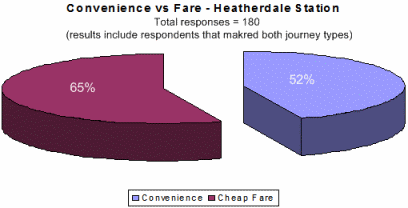Communities for Public Transport is unique in that it places communities first and foremost in its advocacy efforts.
Communities for Public Transport, the public transport advocacy group established to represent and empower local communities, will be featured at Melbourne’s Sustainable Living Festival on Sunday the 17th of February at 10am.
The Sustainable Living Festival, an annual event held at Federation Square, aims to showcase organisations that inspire and promote sustainable communities.
I have been invited to deliver a presentation on Communities for Public Transport with the aim of providing advice on community advocacy and to highlight the key issues facing the campaign for public transport improvements in Melbourne and Victoria.
The ongoing inaction over public transport is emerging as a key issue within metropolitan Melbourne and now is the time for local communities to speak up and demand much needed public transport improvements. Rising petrol prices are adding severe financial pressures to many households, particularly those living in the outer suburbs where public transport is not readily available.
Public transport is also required to ensure an equitable Melbourne, where people of all abilities are able to participate in society. The State Government must accelerate disability compliance works to ensure that it exceeds the required milestones established under the Federal Government’s Disability Discrimination Act of 1992
The State Government must demonstrate that it is serious about making public transport improvements a priority. Traffic congestion is creating a severe impost on the economy with severe inflationary pressures undermining Melbourne’s productivity. In addition, Victoria’s greenhouse emissions are continuing unabated due to heavy car dependence.
Local communities know the public transport improvements they require and are best placed to advocate for the public transport improvements that will provide for a sustainable future. It is time for local communities to demand action and to find their voice. Melbourne and its outer suburbs must no longer tolerate poor train reliability, infrequent buses, a lack of nearby stations, inaction over tram extensions and an ongoing list of broken promises over rail extensions.
I encourage you to attend the presentation Active Communities = Active Advocacy at 10am in the design tent at the Sustainable Living Festival, Federation Square.
